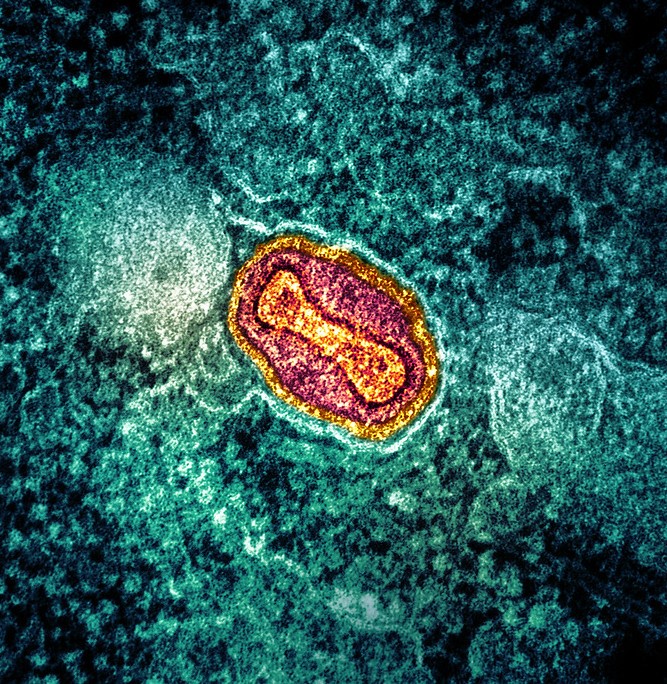–Craig Chandler|University Communication|University of Nebraska-Lincoln
US scientists report that they have produced a gene-edited calf with reduced susceptibility to bovine viral diarrhea virus (BVDV), an innovation they say could potentially reduce antimicrobial use in cattle.
In a proof-of-concept paper published yesterday in PNAS Nexus, a team led by scientists with the US Department of Agriculture (USDA) Agricultural Research Service describe how they used CRISPR gene-editing technology to produce a live calf with a six amino acid substitution in the BVDV binding domain of CD46, the main cellular receptor for BVDV. The scientists edited cattle skin cells to develop embryos carrying the altered gene, then transplanted the embryos into surrogate cows.
The calf, named Ginger, was born in July 2021, and after observation for several months was housed for a week with a BVDV-infected dairy calf to determine if she could become infected. Follow-up testing showed Ginger's cells displayed significantly reduced susceptibility to BVDV. The scientists say they will continue to monitor her health.
The most successful version of the future that I can see is one where we don't have to deal with antimicrobial resistance because we just don't use that many antimicrobials.
Although a BVDV vaccine has been available for more than 50 years, the disease remains common in cattle and can cause severe respiratory and intestinal harm to beef and dairy cattle. In addition, when pregnant cows are infected, BVDV can cross the placenta and infect developing calves, resulting in abortion, congenital malformation, or persistently infected cattle who constantly shed the virus and are at risk for secondary bacterial infections.
The authors of paper say that if the approach proves to be viable, it could improve animal welfare and reduce the cattle industry's reliance on antimicrobials.
"The most successful version of the future that I can see is one where we don't have to deal with antimicrobial resistance because we just don't use that many antimicrobials," paper co-author Brian Vander Ley, DVM, PhD, of the University of Nebraska-Lincoln, said in a university press release. "That's better for everyone. That means that we have eliminated the cause of a lot of the antimicrobial use and we've eliminated that expense for livestock producers."

 A
A 















